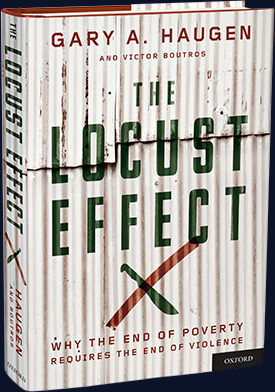If you care about helping people live in a Christian way in today’s culture, no doubt you follow some of the major religious liberty cases making their way through the courts. The laws are slowly but surely diminishing people’s freedom to live as Christians. Unfortunately, this is largely Christians’ fault. Our inadequate theology of work and economics has encouraged our culture to think about religion in a way that forces it out of cultural life.
This year, in Newland v. Sebelius, the U.S. Department of Justice asserted that any business that operates for profit must be considered “secular,” and “by definition, a secular employer does not engage in any exercise of religion.” If the courts agree, this definition will become law. Freedom of religion will be removed from the world of work, which is most of life.
From this perspective, work is no longer a moral and spiritual activity when someone turns a profit. The idea that our work might keep a business profitable while also serving other purposes is never considered. If someone makes a profit, then by “definition,” profit is the only motive, eliminating any moral or spiritual meaning of the work.
When we think about business from this premise, it makes perfect sense that the law can force us to work in ways Christians find morally abominable, such as forcing us to subsidize abortion with our work. When Christians object that we must work in accordance with our consciences because work is morally meaningful, people can dismiss this argument as a delusion. Profit is involved, therefore, morality is not.
Where did our culture learn to think this way? Largely, from us.
For generations now, Christian theology and sermons have proceeded from the assumption that profit is inherently opposed to moral and spiritual purpose. The idea that profitable work pushes morality out of the equation is almost a perfect distillation of the prevailing theology of economics in the American church. This assumption is sometimes stated openly, but much more often is woven into the fabric of sermons and church life without recognition. Most pastors and other religious professionals hold this view without even being aware of it.
This indiscriminate hostility to profit reveals itself most clearly in strategies often used to recruit people to the pastorate, foreign missions, or parachurch organizations. According to the traditional message, if you want to serve God, you need to go into “ministry” rather than business. In a talk given at Bethel Seminary in October, I heard Steve Garber relate that until recently, one of the largest national campus ministries used to pressure students to work for the organization after they graduated—and told them if they went into business instead, they should at least make a lot of money so they could “support the ministry of people who care about Jesus more than you do.”
To be sure, secular theories have played a role. Adam Smith, Karl Marx, Max Weber, and John Maynard Keynes taught our culture that business and economics operate separately from the identity, motivation, and purposes people bring to their work. These assumptions have become deeply embedded in academic disciplines like economics and sociology. Some of these theories (Marx and Weber) are hostile to profit, while others (Smith and Keynes) champion it; what they have in common is the separation of economic behavior from moral character.
It is not important today to determine how much responsibility for the current situation lies with secular theories, and how much lies with our own theology and practice. Our business is to figure out what story we ought to tell our culture about morality and profit, and get busy telling it.
The Bible indicates that making a profit by doing honest work that serves human needs and makes the world a better place is good and ought to be encouraged (Proverbs 31:18, Ephesians 4:28). At the same time, it severely warns us against prioritizing profit over serving human needs (Matthew 6:24, I Timothy 6:10). A large number of recent Christian books have explored how workers and businesses can hold these two imperatives together with integrity within the context of an entrepreneurial economic system – for example, Kenman Wong and Scott Rae’s Business for the Common Good, Jeff Van Duzer’s Why Business Matters to God – and What Still Needs to Be Fixed, and Wayne Grudem’s Business for the Glory of God. Other books explore how we can shape the economic system itself to meet these imperatives: Victor Claar and Robin Klay’s Economics in Christian Perspective, David Wright’s How God Makes the World a Better Place, and Austin Hill and Scott Rae’s The Virtues of Capitalism.
This integration is also reflected in Element 4 of the Economic Wisdom Project, which states that “real economic success is about how much value you create, not how much money you make.” Value creation – serving human needs and making the world a better place – is the proper basis of profitability. We want companies to be successful (which includes profitable) by creating value. Profit by itself cannot be the sole yardstick of success. Ultimately, it is value creation that makes the profit moral.
Both sides of the equation are needed. If we condemn greed, but do not affirm just as strongly that it is good to make an honest profit by doing beneficial work, we end up with a culture that simply separates profit from morality; in other words, the current mess. On the other hand, if we affirm good profit without being on guard against the temptations of profit (as the church has done at other times in history) we end up with the same separation in a different form. Only the whole counsel of God will do; nothing less.
Pastors and local churches do not have much power to affect the law or the courts in the short term. The law and the courts, however, are integral parts of the culture, and in the long term, pastors and local churches have tremendous power to shape the culture. They do this by offering people a better story about the meaning and purpose of their lives – a story that is more plausible, more spiritually satisfying, and more conducive to a good life than the story the world has to offer them. The divorce of morality from profit is a terrible, dehumanizing concept, but most of our neighbors believe this is the story they live in. Let’s tell them a better story. We might be surprised at how much we can accomplish.
From Kern Pastors Network. Image: Wikimedia Commons.












